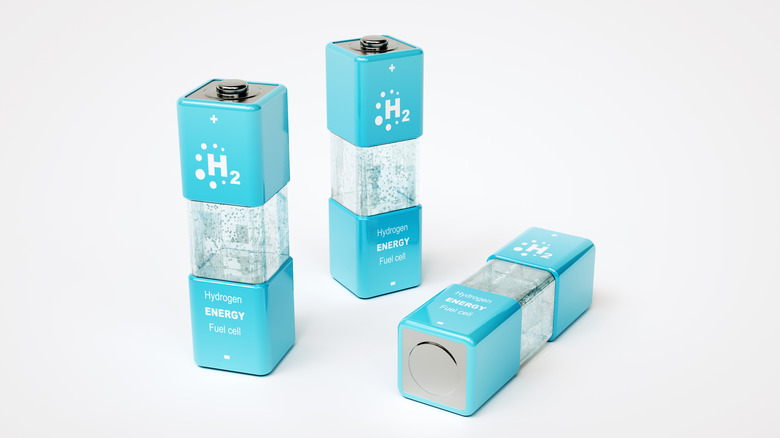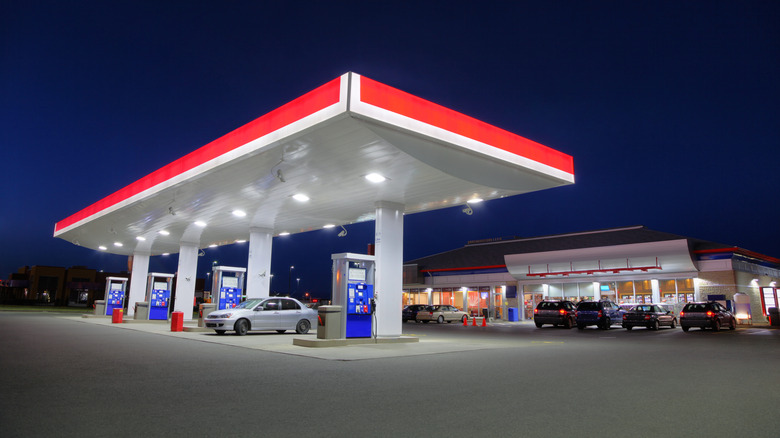
Maxon Tan/Shutterstock
The entire reason that automotive engineers has spent the last several decades researching and developing reliable forms of alternative fuel is to address the ever-growing price and scarcity of fossil fuels, not to mention their environmental impact. Fossil fuels will run out some day; maybe not soon, but it will happen, and as that time gets closer, the average price will only continue to increase as they become harder to find. Getting the world on board with an alternative, renewable fuel source will not only dramatically lessen humanity’s carbon footprint, but make energy more readily available to everyone who needs it at a fraction of the cost.
Here’s the important thing, though: while renewable energy isn’t completely ready for prime time just yet, it’s getting very close. Advancements in solar panels and hydrogen fuel cells, among other technologies, have been rocketing forward in recent years, and it’s easier than it’s ever been to switch a fossil fuel system over to something sustainable. Engineering isn’t the central concern of going green anymore, so what exactly is?
To answer that question, we spoke with Dr. Laine Mears, the Automotive Manufacturing Chair of Clemson University’s department of automotive engineering. Dr. Laine Mears, Ph.D., P.E., has been an assistant professor with the CU-ICAR campus since 2006, teaching both modeling and analysis of automotive manufacturing processes and automation integration in manufacturing. You can find more information about him on Clemson University’s website.
Development and design aren’t the main problem anymore

Petmal/Getty Images
The long-standing assumption is that, as soon as someone finally discovers the proverbial silver bullet of renewable energy – something we can stick on any vehicle or generator in lieu of a combustion engine — the rest of the process will fall into place. We won’t need to bother drilling for oil or mining coal, we can all just switch to whatever the new thing is and go about our business in perpetuity.
The technology, however, isn’t the problem, or at least not the main problem. Fossil fuels have been the primary source of energy for just about everything everywhere for as long as the concept of «fuel» has existed in human society. Their usage is hard-coded into human society, and even attempting to change that would be a Herculean task, to say the least.
We asked Dr. Mears what the biggest engineering hurdle to eliminating gas-powered vehicles is, and in response, he explained that engineering hurdles aren’t what’s stalling things out.
«If we agree that that is a good thing, then providing an alternative that can move people from one place to another which they can access when they need at a reasonable cost would be what is needed.»
The trick is making the renewable source cheap and easy to switch to

Buzbuzzer/Getty Images
Rather than engineering or design problems, the primary obstacle that’s preventing us from going renewable is an economic one. Even putting aside the fact that oil companies have a vested interest in keeping the oil flowing for the sake of their profits, creating the kind of infrastructure necessary to support whatever renewable source we switch to would take years and cost billions of dollars, if not more.
«I would not say there were engineering hurdles, more than I would say this is a problem with market inertia and the economic drivers that keep gas (and diesel) vehicles on the road,» explained Dr. Mears. «What would it take to eliminate every gas station in America and transition the oil industry to an alternative technology? That would be a considerable effort driven by motivated consumers.»
Essentially, what needs to happen here is that every single gas station in the United States and beyond would need to be either replaced or retooled to dispense the new power source. The various components of the oil industry would also need to switch over to prevent an extreme economic upheaval. We have the beginnings of such an effort with EV chargers at gas stations and corporate efforts to offer green alternatives, but we’re in phase one of what promises to be a thousand-phase plan.